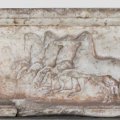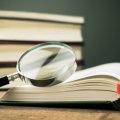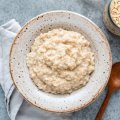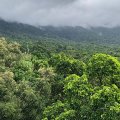Australia's increasing security, economic and diplomatic ties with its Asian neighbours need not be at the expense of its relationship with the United States, according to a new book by two University of Queensland historians.
The book, which examines the complex relationship between the two countries, predicts a continuing partnership, but one in which Australia will wish to be viewed more independently.
Reader in American diplomacy in the University's History Department Associate Professor Joseph Siracusa and PhD student Yeong-Han Cheong have co-authored America's Australia/Australia's America (publisher, Regina Books, paperback, $19.95).
Dr Siracusa believes the book, which covers the period from Curtin to Clinton, to be the first major historical study of Australian-American relations published in the past 10 years. It is also one of the first research collaborations between Australian and Malaysian historians.
'Since 1945 Australia's future in the region has been more uncertain and Australia has continued to seek reassurance from America, particularly in view of the trade imbalance between the two countries,' Dr Siracusa said.
'Australia has never been a subservient partner but it has aligned itself closely with Western super-powers and at times has been seen as acting as America's deputy-sheriff in the region.
'Australia has fought five times alongside America, most recently in the Gulf War, and President Clinton's visit to Australia last year was followed by strengthened defence arrangements this year.
'Because of the increasing complexity created by America's desire to engage an emerging China, Australia will have to be careful to be seen as an independent entity.'
Dr Siracusa and Mr Cheong say in the book that Australia's relations with the United States could never be other than paradoxical.
'On the one hand, nothing could be more natural than a close relationship between two English-speaking peoples, both vitally concerned with events in the Pacific, and with striking cultural, political and geographical similarities,' they said.
'On the other hand, any relationship that did develop between them could only be perforce asymmetric. Since the last decades of the 19th century, the United States could normally count at least 15 times the population and 19 times the economic resources of Australia. This huge disparity in power had one inevitable consequence: in any partnership, the United States had to be vastly more important to Australia than Australia could ever be to the United States.'
This was not to say that the relationship did not pull in both directions, because clearly it did.
Dr Siracusa and Mr Cheong said for more than 50 years the primary goal of Australian foreign policy had been to keep the U.S. engaged in the region as the ultimate guarantee of Australian defence.
For this reason, the ANZUS treaty remained the cornerstone of the relationship. For Washington, Australia remained the 'southern anchor' of America's Asia-Pacific security arrangements, with Japan as the 'northern anchor.'
'Washington has never ceased to appreciate Australia's unique strategic location astride the Indian and Pacific oceans, between California and south-east Asia,' Dr Siracusa said.
Dr Siracusa said Australia remained an English-speaking and affluent island continent in the south-west Pacific, surrounded on three sides by great oceans, and dominated by an Asian land mass, the population of which increased each year by about three times the whole Australian population.
'Australia has the same problem as South Africa of being a country apart in its geographical region. We now have opportunities for charting a positive future in the region which we should not squander,' he said.
'We have nowhere to go so Australia will have to be militarily self-sufficient and will have to be very clever to play the Americans without giving the Chinese the impression we are following the American tune.'
Dr Siracusa said the University of Queensland's History Department had a long history of strength in Australian/American studies. Department founder Professor Gordon Greenwood had written a pioneering study in 1944, while Dr Glen Barclay had continued the tradition of scholarship excellence. Dr Siracusa and Dr Barclay co-authored a book on Australian-American relations in 1976, as well as various articles and papers.
Dr Siracusa's books also include A History of United States' Foreign Policy (co-authored with Julius Pratt and Vincent De Santis) and Safe for Democracy: A History of America.
A U.S. foreign policy specialist, he has been a University of Queensland academic for 25 years and has lectured on Australia and the U.S. at the Fletcher School of Law and Diplomacy, Harvard University, and Pennsylvania State University.
Yeong-Han Cheong, who studied for a bachelor of arts majoring in economics and history, was awarded an honours degree in 1994. He is in the third year of a PhD studying the career of U.S. diplomat Averell Harriman.
Mr Cheong has lectured at the University of Malaya and the National University of Singapore. His father, Mr Cheong Seng Kee, is the Secretary of Finance in the Malaysian Ministry of Agriculture.
For further information, contact Dr Siracusa telephone 3365 6402 or Mr Cheong, telephone 3365 6320.
.jpg)



